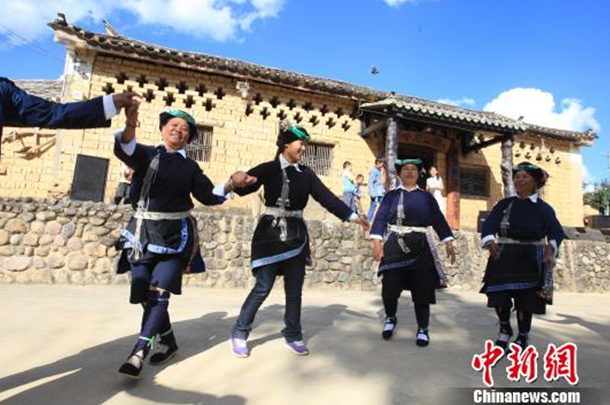

Network media covering China's national unification paid a visit to Mojiang county near the city of Pu'er, Yunnan province, recently, to report on a local ethnic group's ecological approach to agriculture, meaning the use of a combined ecosystem for agricultural production and biodiversity conservation.
 |
|
Villagers in the village of Zhetie dancing and singing to welcome the visitors |
The media group visited the village of Zhetie, which is home to the Hani ethnic group which in the past suffered from poverty and a lack of infrastructure, but then changed their fortune after following ecological agricultural practices.
One of the villagers, Li Yunzhen, explained, "My family have been raising fish in our rice field for a decade and we've put 50,000 yuan ($7,800) into raising pigeons, bringing us 20,000 yuan annual year income," while Li's relatives and friends say they also make fuller use of their land to raise fish and this has become the main source of their income over the past year.
Li went on to say, "And, with better infrastructure, fewer villagers are choosing to go look for work outside," then explained that she expects to augment her income by getting into the household tourism business and has the support of the local Party chief.
That chief, Chen Jun, then commented, "Rural tourism can drive the economy and promote local specialties, but a lack of investment in the business is getting in the way."
Zhetie covers a 160-square-kilometer area in the northern part of Mojiang county. The area mainly produces tea, rice and corn, with the Hani people making up 99 percent of the population of 342.
Copyright ©2014 City of Pu'er, Yunnan Province, China. All rights Reserveed.
Contact: Tel: 86-0879-2189875 Email:puernews@126.com